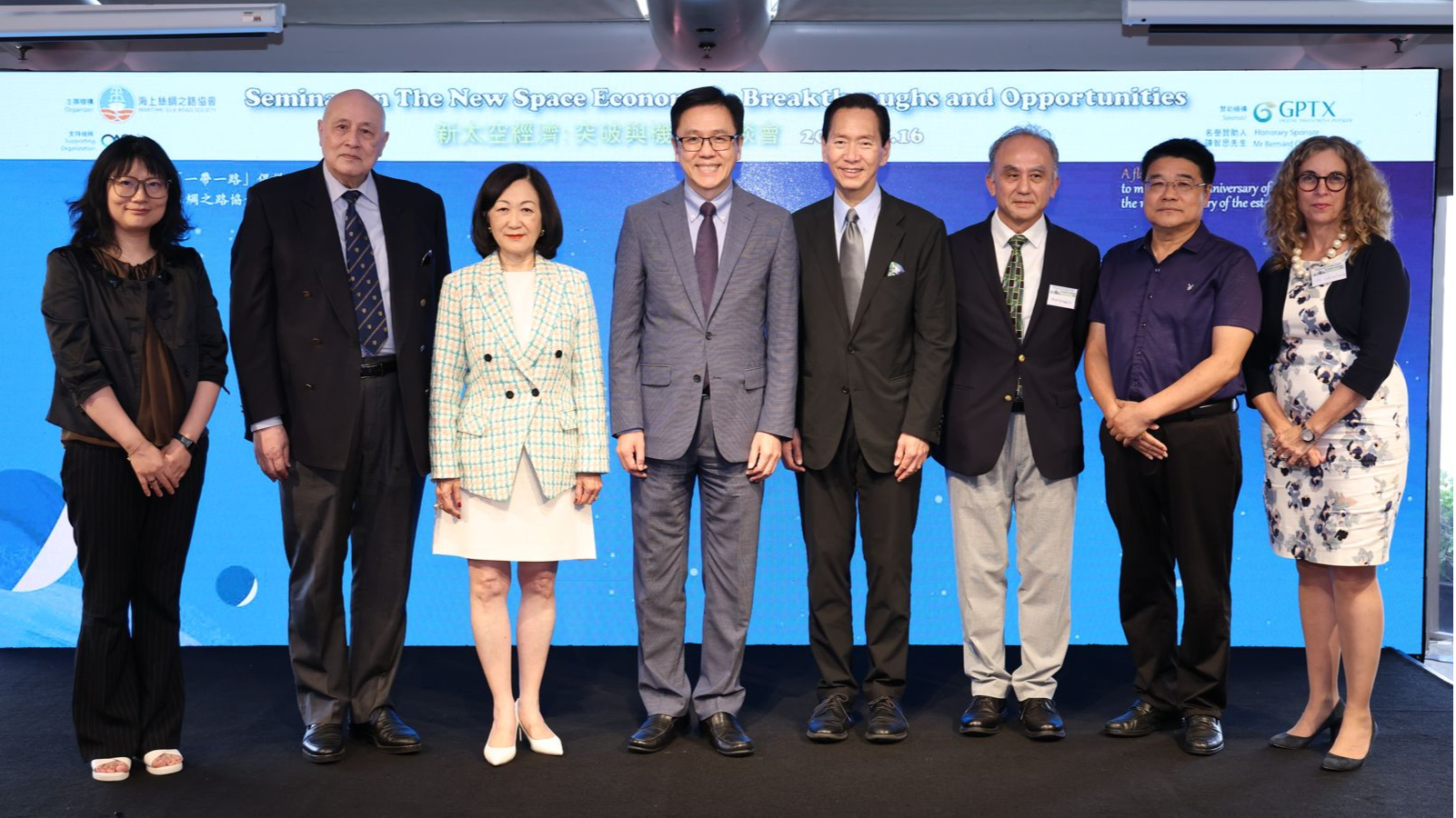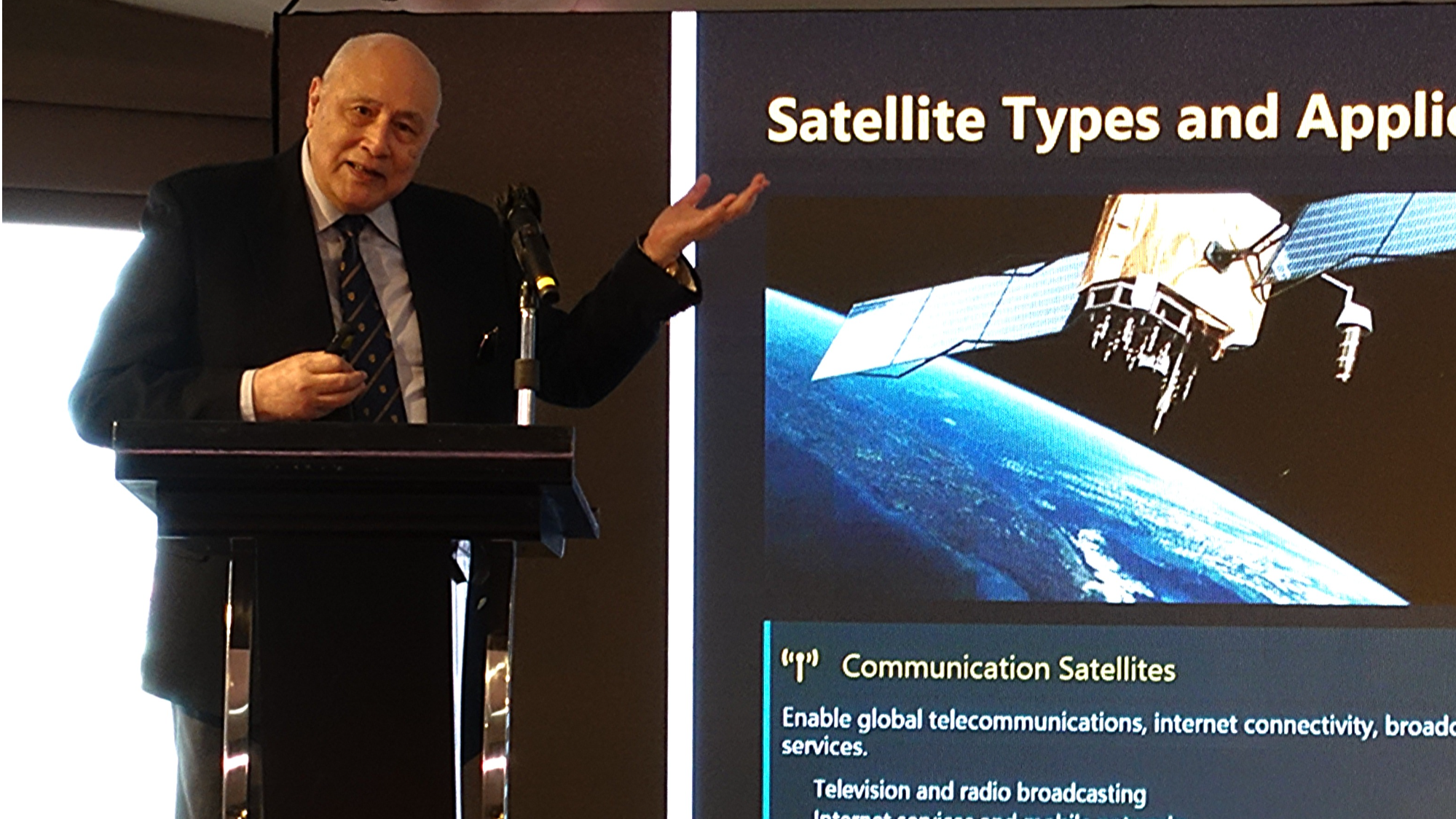
On the eve of the 2025 Policy Address, heavyweights called for concerted efforts to be made to unleash the potential of space commercialization and governance.
“There is a general consensus that Hong Kong can do a lot to support the growth of the nation’s commercial aerospace economy and contribute to the peaceful use of outer space,” said Regina Ip Lau Suk-yee, convener of the Executive Council and a member of the Legislative Council of the Hong Kong Special Administrative Region, at the Seminar on the New Space Economy, held by the Maritime Silk Road Society on Sept 16.
Secretary for Innovation and Technology Sun Dong said cooperation has already begun in the research sector. “The Hong Kong Special Administrative Region government is dedicated to fostering global research collaboration. The Hong Kong Space Robotics and Energy Centre (HKSRE), a new InnoHK R&D center, has been established to develop multifunctional robots for space applications and facilitate local research clusters participating in the nation’s space missions.”
READ MORE: Hong Kong students ‘inspired’ by nation’s progress in space
However, legal experts, investors, and academia in the seminar urged the city to take bold steps, from space governance and world-class space-related professional services including, but not limited to, data analysis and transactions and space insurance.

Anthony Francis Neoh, co-chairman of the Asian Academy of International Law, said during the seminar that, thanks to the exponential growth of low earth orbit (LEO) satellites, an estimated 50,000 high-skilled position of the space industry and additional 100,000 job opportunities in space and related sectors will be generated by 2030.
The potential of the new space economy needs to be recognized and a task force is also in need to coordinate the stakeholders and cross-boundary cooperation. Neoh, a member of the Hong Kong Bar, said a substantial growth in the number of LEO satellite constellations, and its growing presence in people’s daily lives, has increased the need for space finance and governance.
Space governance is needed as the number of LEO satellite constellations and the variety of services they provide to daily life in the digital world grows, where 5G is prevalent and 6G is on the horizon.
“Only a few people are involved in space law, and Hong Kong is unable to provide space insurance services,” Neoh said.
Ip said Japan has already started building space governance to deal with space debris, while Hong Kong, despite its robust legal system, is struggling with a shortage of professionals and a lack of public awareness in the space economy.
Neoh said Hong Kong needs a lot of work if it is to become a leading center for space law and space insurance, starting with a space talent initiative and setting up a special task force.
“Now we need to develop expertise and bring space insurance services back to Hong Kong,” Neoh said.
Another area Hong Kong should specialize in is space auditing, which will enable the city to grasp a real-time picture of its development in the new space economy, Katherine Courtney, chair of the Global Network on Sustainability in Space, said.
“Hong Kong has huge potential in data analysis services,” she added.
READ MORE: Nation’s space journey exhibition to be staged in Hong Kong
Gregg Li, founding director of the Orion Astropreneur Space Academy, said that LEO satellites transmit huge amounts of data to the ground, but this raw data requires expertise to analyze it for commercial purposes. This is another area in which the city's thriving service industry can contribute, he added.
Gao Yang, director of the Center for AI Robotics in Space Sustainability and co-director of the Space Science and Technology Institute at the Hong Kong University of Science and Technology, said: “Hong Kong is perfectly poised to contribute with its world-class universities, thriving tech ecosystem, and unique gateway position.”
It is said that Hong Kong is taking the initiative to set up a United Nations (UN) space-time intelligence innovation center to provide time synchronization services.


